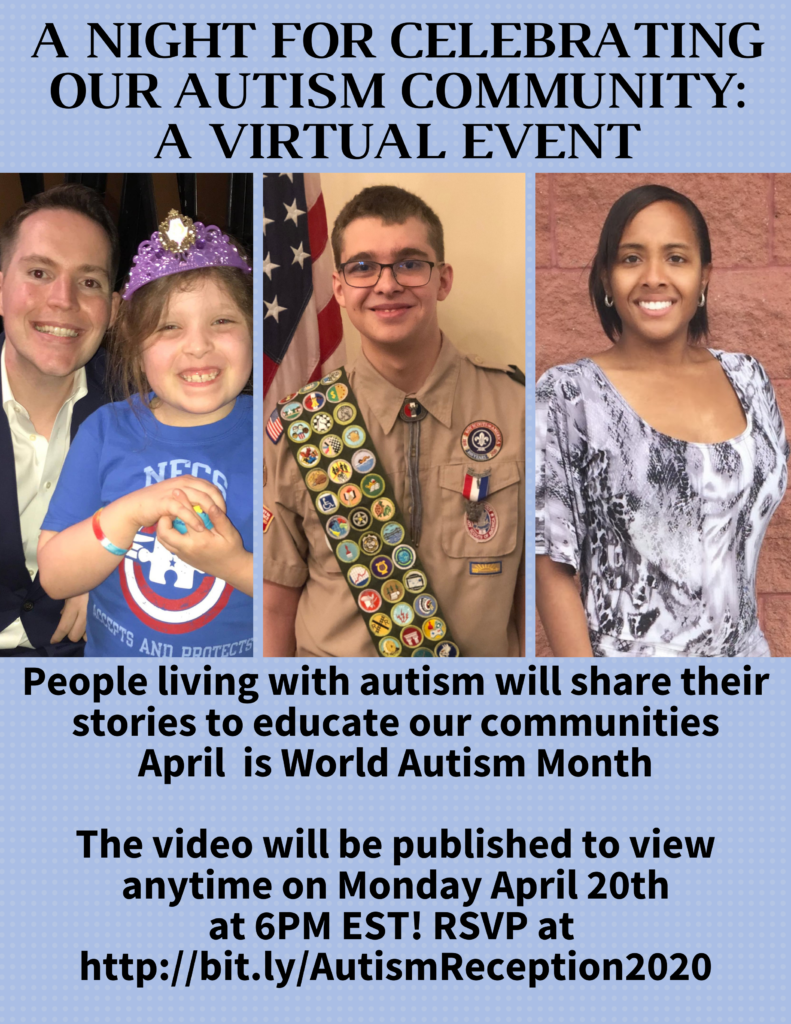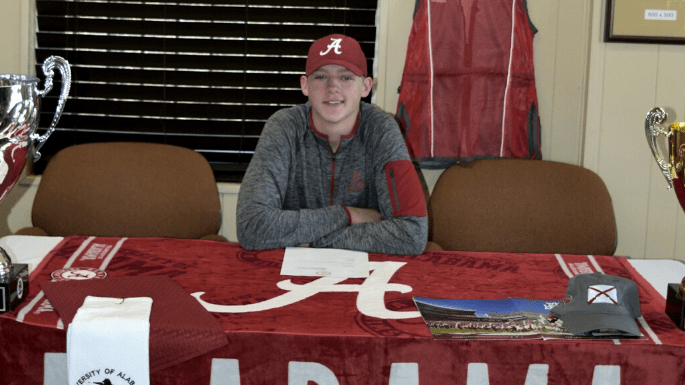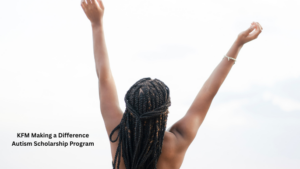This guest post is by Cole Harmon, a young man on the autism spectrum who has been accepted and will be attending the University of Alabama where he’ll be majoring in Aerospace Engineering. Cole is applying for the Spring 2020 Making a Difference Autism Scholarship via the nonprofit KFM Making a Difference started by me, Kerry Magro. I was nonverbal till 2.5 and diagnosed with autism at 4 and you can read more about my organization and how to apply for my scholarship here. I’m trying to make this nonprofit self-sufficient so I can make this my full-time job supporting the special needs community and would appreciate you taking a minute before reading on to watch the video below to see why this cause is important to me. I hope you can support my nonprofit like I’m trying to support these students with scholarship aid for college. Learn more on how you can help our cause here.
My parents love to talk about how, as a baby and toddler, I ignored toys and only played with pipe cleaners, rubber bands, paper clips, ink pens (which I took apart and reassembled into crossbows), and pieces of artificial flowers I found under the shelving at the hobby stores my mom frequented. I investigated the different features of the items I found and experimented to see what they could do. My parents watched me, wondering to each other ‘What is he thinking about? What is his world like?’ They saw that I was different than my brother had been at that age, but did not consider it problematic. As I sat quietly entertained within ‘my own little world,’ they were relieved by how ‘easy’ I was compared to my brother, who, though highly advanced at every stage, demanded nonstop attention and entertainment. The first red flag that got their attention was when I was old enough to begin speaking my first words, but didn’t. Just before their concern drove them to seek professional advice, however, I started talking, using advanced words, speech patterns, and sentences.
Everyone was thoroughly entertained by my apparent passion for eating and incessant appetite. At three, I often put more food away than anyone else at the table. When it was time to leave the table, I would desperately begin shoving as much into my mouth as possible. I used my fingers to push more food into the crevices of my cheeks. At some point, I discovered that I could hollow out a dinner roll and stuff it with the best remaining foods on the table to take away. Imagine my joy when I learned about carryout boxes! It would be years later that they realized I wasn’t taking the food because of hunger, rather, it was a compulsive behavior, a symptom.
By the time I was four or five, my parents knew I had some form of autism, but did not seek testing as they believed they could meet my needs without a professional diagnosis. Everything was fine until second grade. My teacher complained that I was fidgety and ‘not paying attention’ to her when she talked to the class, even though I was. I got all of the questions right on the assignments and tests. My mom tried to explain my uniqueness, needs, and reasons for my behavior, but it did not help. After that, the teacher put my desk in the hallway and left me there all day. There were meetings. Apparently, the teacher and administrators wanted me to be diagnosed with Attention Deficit Hyperactivity Disorder and prescribed medication. My mom knew that I did not have ADHD, but she took me to be tested, twice. Both doctors found that I did not have any indications of ADHD, the school was not pleased. The last day I went to public school was the day the principal stood in the front entryway, with dozens of parents, teachers, and children (myself included) around, and yelled to my mom that she “needed to just admit that something was wrong with” me.
I was homeschooled the rest of second grade and started private school the next year. The tiny class sizes and willingness on the part of the teachers and principal to adapt to each student’s individual learning styles and needs at the private school meant that a diagnosis was unneeded for accommodation purposes. It was before my freshman year of high school that my mom decided it was time to arm me with formal documentation of a diagnosis. I was officially diagnosed with Autism Spectrum Disorder at the age of thirteen. If it had been a couple of years earlier, my diagnosis would have been Asperger’s Syndrome.
I had no idea what it meant when they told me I had Autism. I did not know how to feel. My family helped me understand everything and to feel good about myself. I started calling out “Autism Card!” when I had misunderstandings or made social mistakes. Now, I can look back on times when I struggled to understand what people were talking about, why no one seemed to understand me, why people behaved certain ways or cared about certain things, and so many other situations and realities, and I can smile because I understand what went wrong. My brain works differently than most, and I have learned that my unique perspective and divergent approach to problem-solving is one of my greatest strengths.
The fascination with the features and functionality of materials I first expressed as a baby never left me. I am interested in characteristics such as tensile strength, flexibility, temperature tolerance, electrical conductivity and reactivity. I am also drawn to independent, interdependent, and synergistic functions and elements of design such as structural integrity under various stressors. I have been accepted to the university of Alabama where I will be majoring in Aerospace Engineering. I hope that I will have the opportunity to work with a professor or team doing research involving the ballistics lab. Right now, my goal is an engineering career involving aircraft, vehicles, drone-craft, weaponry, or ballistics for U.S. military applications. My degree from the University of Alabama will ensure that I am properly prepared and positioned to find a job in the field I dream of, and I might even be able to participate in research or an internship with a company while still attending school.
Join us during World Autism Month by RSVPing here for our ‘A Night For Celebrating Our Autism Community Virtual Event’ on April 20th where we will be spotlight several members of our autism community like our scholarship applicants!


Follow my journey on Facebook, my Facebook Fan Page, & Instagram!
My name is Kerry Magro, a professional speaker and best-selling author who is also on the autism spectrum that started the nonprofit KFM Making a Difference in 2011 to help students with autism receive scholarship aid to pursue a post-secondary education. Help support me so I can continue to help students with autism go to college by making a tax-deductible donation to our nonprofit here.














